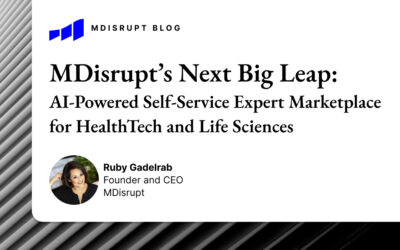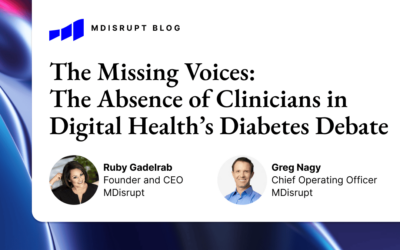Confronting the unimaginable: Covid-19, a surmountable challenge
Each day as I get up and go to work, I have to prepare myself mentally in a way that I have never experienced in my 12 years as a UK Doctor. My colleagues and I witness daily, the gravity and devastation that this despicable thief of life has caused—and it is heart-breaking.
Many of us have been personally affected, directly or indirectly by Covid-19 or have lost someone we love and it is nothing short of brutal. There is no doubt in my mind that we will one day all be living in a post-pandemic world that will no longer resemble much of our pre-pandemic one either economically or socially, but I do hold the firm belief that we will once again, reclaim our independent lives, albeit in some alternate form, at the end of this war.
Adapting to the New Normal
Many healthcare professionals share the same concerns and uncertainty as the rest of the public, but in the thick of it as we are now, our primary resolve is to fire-fight our way to global safety.
Some healthcare professionals also share the cynicism that many members of the public express about the way our various governments have handled certain aspects of this Covid-19 war. It is undeniable that many positive strategic steps have been taken, such as the rapid deployment and reinstatement of retired healthcare workers, the Herculean effort of everyone involved in the development of the UK Nightingale ITU hospitals – massive temporary hospitals put together in a matter of days to help increase capacity where regular hospitals struggle to admit any more patients – and the active campaign to protect the NHS and global health systems aimed at ‘flattening the curve’ through staying at home, to save lives, have all been pivotal and impressive. However, crucial delays in implementing a hard lockdown, PPE shortages for frontline staff, inadequate levels of testing and the procurement of antibody kits which fail to meet trialled standards have all been hot topics of debate amongst health professionals and our society at large. In response to this, I believe we will see some very significant reforms to our post-pandemic healthcare systems, striking changes within our economy and alterations in our social behaviours that are likely to be long-standing.
Lockdown V Liberty
My colleagues and patients regularly ask my views on our current state of lockdown. The essential move to severely curb movement amongst the population has been a globally challenging phenomenon, taking its toll financially, physically and emotionally on every individual. It is, however, the only measure that has been shown to reduce the spread of this highly contagious virus as it clearly deprives Covid-19 of the opportunity to pass from person to person. Hard lockdown has been, and still is, a fundamental step in our fight at the coal face of this pandemic but I am not convinced it can continue in its current form until a vaccine or treatment is established. The impact on the physical and mental health of the population and the socio-economic consequences of a long-term hard lockdown would likely be extensive and far-reaching. The evidence requires detailed evaluation in an effort to find a safe and workable balance in the months ahead.
This does not mean lockdown should be lifted at this phase, while death rates continue on an incline, without careful consideration as to how this should happen. If we are too impatient and take action prematurely, this would put us firmly back to square one, if not worse, as saturation points start to be reached within our hospitals. There is an infectivity index (R0), which measures how infective the virus is among people- our aim is to see this become R0 <1, which is what containment and staying at home should achieve and has been successfully reached in many countries. Anything above R0 >1 will result in an exponential growth in case numbers and this would be catastrophic.
So, what happens after lockdown is slowly lifted? My view is that Covid-19 will continue to exist among us but we will likely step down the ladder from a pandemic state —> epidemic —> virulence levels. We will still be at risk but the probability of contracting this virus will be much lower as the number of cases declines through isolation and social distancing and we would need to exercise sensible limitations to our movements until such a time that the vaccine and treatments emerge.
If the lockdown release is too abrupt, we risk a secondary surge in cases similar to that seen in China last week in its northern borders with Russia – this was thought to be due to an influx of overseas Covid-19 positive people into China, after which the border was quickly closed and further quarantining was mandated.
I agree with those who express the view that this pandemic will have a permanent effect on general social behaviours. Personally, I believe there is likely to (or at least should) be a graded exposure back to mobilising the public to essential activities first, then close family mixing and finally, over time, a more full social interaction.
It is hard to imagine that our social landscapes will ever see the dense aggregation of people that we have previously enjoyed and indeed I suspect that concerts, cinemas and even restaurants that can’t maintain safe social distancing may well need to wait for their lockdowns to be lifted until such a time that vaccines and treatments are more established. This all remains uncertain for now and the coming weeks will be telling as government strategists look at ways to safely rehabilitate us back to our functional lives.
Collateral Damage—the Forgotten Victims of Covid-19
There is a growing concern amongst healthcare professionals that there is a risk of declining health in non-Covid-19 patients who suffer from other chronic conditions which have been eclipsed by this pandemic. The fear is that there will be significant consequences if these patients cannot access their healthcare providers or are fearful of attending hospitals over prolonged periods of time. Patients shielding (where extremely vulnerable individuals are advised to minimise all interactions with others and stay home while having access to priority food supplies and other vital services), limited access to health services resulting from Covid-19 surges, cancelled procedures and treatments, delayed presentation and non-surveillance of chronic health conditions will all contribute to the mass grave of the Covid-19 era.
As primary healthcare providers, we are still able to see many patients (albeit mainly virtually) but access to all our patients needs to improve to prevent an increase in non-Covid-19 mortality over time. Primary care has been forced to digitise at an unprecedented speed with the rapid scale-up and introduction of telemedicine through the use of video consulting, electronic prescribing and other digital applications that enable a more flexible remote working capability. What we can see is an enabled primary care provider that can continue to offer access and services virtually so as to minimise the risk to both healthcare professionals and patients during the pandemic The NHS and private sectors have also harmonised in an unprecedented way with private hospitals and clinics committing their facilities, staff and equipment for the use of NHS patients Together, they have shown some impressive resolve and flexibility, which will hopefully outlive this viral war and improve national healthcare well after it no longer faces such a colossal challenge.
Reviving the Economy—the healthcare implications
Our economy will need some serious attention in the coming weeks, not least because at a critical point, and once infectivity is R0<1, the non-Covid 19-related morbidity and mortality caused by a long-term and deep financial depression in our country may potentially outweigh the risk of Covid-19 related tragedies at that junction.
This is a veiled outcome for us all to imagine from where we are all at now but there has been considerable modelling based on Wuhan data and other research to identify the most appropriate way back to some socio-economic ‘life’. One study in the Lancet by Prem, Lui et al. highlights a number of approaches that are being trialled to achieve a return to graded social mixing and with the aim of enabling some socio-economic recovery. They acknowledge their modelling needs further research and analysis but their projections suggest that premature and sudden lifting of interventions could lead to an earlier secondary peak, which could be flattened by relaxing the interventions more gradually.
So, to avoid the risk of provoking a second wave of the virus spreading, and a subsequent early second peak, we may need to be prepared to accept a relatively slow approach to lifting the lockdown.
The Marathon, not the Sprint—Uniting for the Win
No one knows how Covid-19 behaves in the long term – we just do not have that insight but an immense amount of research is being undertaken globally and each day we are more informed, more empowered and ever closer to overcoming this pandemic. For now, however, it remains an elusive and unpredictable nemesis.
I know patience is being tested and it feels like nothing will be the same again but we should try to accept that we are in this for the medium term at least and that we may well emerge with a few positive reflections and adjusted ways of living that, while may not be the same, will still enable us to have our capacitated lives back.
In the meantime, I should say that every single health professional, researcher, and key worker I have encountered has been beyond dedicated and committed to helping us all out of this with the least possible number of casualties and, whatever our political or personal views, for now we are fully united in our fight to shepherd our nations up the incline, to the summit and down the other side safely.
Thank you To All Our Healthcare Colleagues on The Front Line
Please know that I, and many of my colleagues are deeply affected by what we are seeing each day at work, horrified at how unrelenting and unkind this criminal virus is and humbled by seeing other colleagues fearlessly approach the most risky of situations without a second thought to their own safety in order to help someone else. I am optimistic and hopeful that if every person does their bit, people stay at home and give us the time we need, we will be able to emerge from this and hopefully have some answers.
I want to express deep gratitude to everyone who is fighting the good fight and sympathy for anyone who has been affected directly or indirectly, or who has lost someone they love to the horror of this disease. Every single person who is staying at home for us, is a warrior in this war.

Dr. Rasha Gadelrab
MDisrupt Guest Blogger: Dr. Rasha Gadelrab, MRCGP MBBS BSc (Hons), NHS GP & Chief Medical Relations Officer
Dr. Rasha Gadelrab is a portfolio NHS GP, Quality Improvement Manager and a clinical Covid-19 contingency lead in a North London Practice. She is also the Chief Medical Relations Officer of www.myhealthspecialist.com. Since completing her medical training, she has dedicated her career portfolio to clinical medicine, medical education, digital innovation and healthcare quality improvement activities in order to improve patient care.
If you are a health tech founder looking for guidance on building or growing a healthcare savvy product team, talk to us—we can help.



